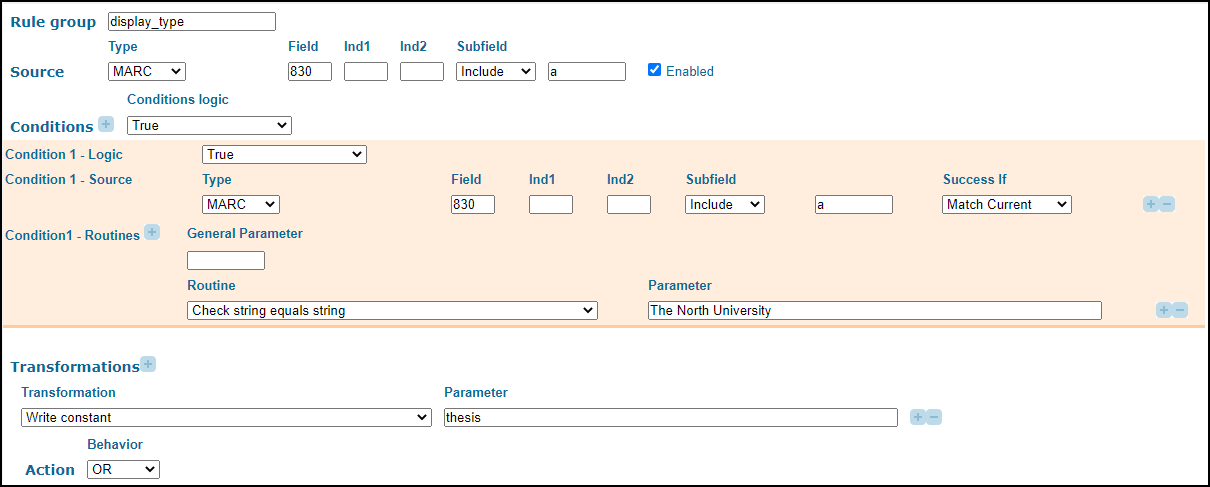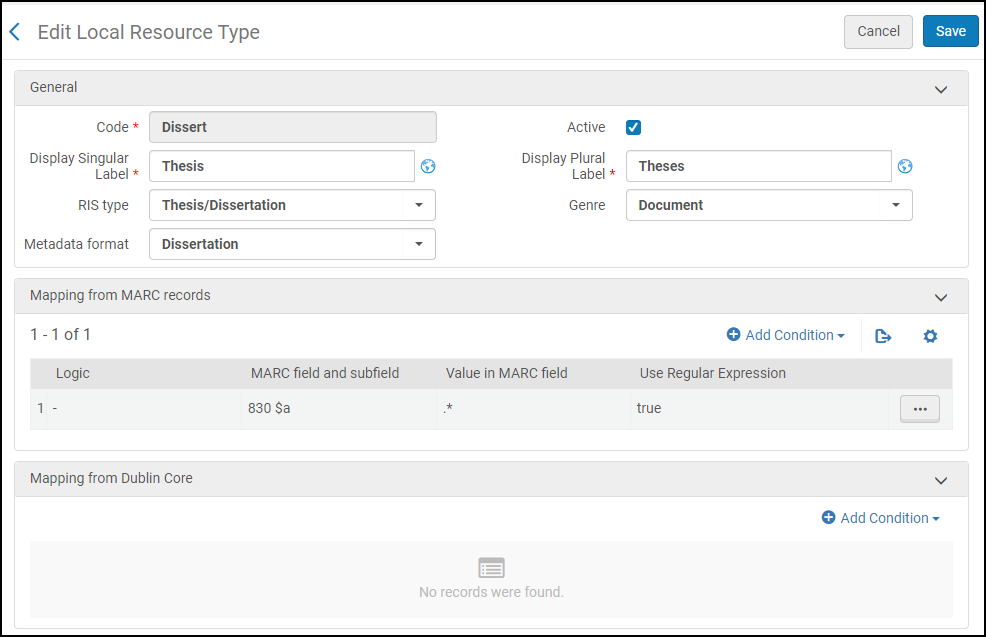Go VE: Converting Local Resource Types in Primo to Primo VE
Local resource types allow users to discover resources of types that are configured locally and are not included using the out-of-the-box rules, which are based on standard metadata. For example, your library may need to support the discovery of local resource types (such as exam, book chapter, or case law).
This page provides instructions on how to copy your local resource types from Primo to Primo VE.
Background
Comparing the Configuration of Local Resource Types in Primo and Primo VE
Local resource types are used the same way in both Primo and Primo VE, but here are their configuration differences:
-
Primo:
-
The local resource types are configured with your normalization rules (Display/Type section in the PNX record).
-
Additional information for the local resource type is configured with the normalization rules (Additional Data/RIS, Format, and Genre sections).
-
The plural form of the local resource type is configured in the format_mean code table.
-
Re-pipe is needed after updating the normalization rule with a new resource type.
-
-
Primo VE:
-
All the necessary information for local resource types is configured with a single page called Edit Local Resource Type.
-
After you add the local resource types to Primo VE, recalculation is needed only for the relevant set of data and not for the entire set of data.
-
Documentation and Training Videos
In preparation for this task, it is recommended that you familiarize yourself with the following documentation:
Preparation: Gathering Information from Local Resource Types Defined in Primo
Before you start defining the local resource types in Primo VE, it is necessary to see what you are currently using in Primo. Here is the information that you will need to create a local resource type in Primo VE:
-
Local resource type name – Compare your normalization rules with the Alma template. If a Display/type field exists only in your rules, this is considered a local resource type. You can use the value of the constant in the rule as the local resource type name. In the following example, records are assigned the local resource type thesis if they have a MARC 830 $a that contains the value The North University.
 Display/Type section in Your Alma Normalization Rules
Display/Type section in Your Alma Normalization Rules -
Source/Condition – The conditions needed to assign a resource type to a record is also retrieved from the Display/type field in your normalization rules and can be found specifically in the Source and Conditions section of the rule. In the above example, records are assigned the local resource type thesis if they have a MARC 830 $a that contains the value The North University.
-
RIS Type, Genre, and Metadata format – These values are mapped for this resource type when users export records to citation managers and can be found in the corresponding fields in the Additional Data section of your normalization rules. In many cases, these values are mapped with associated mapping tables.
-
Plural form of the local resource type – If you are not sure, this value can be found in the format_mean mapping table in Primo.
For more information, see How to add a searchable resource type to Primo.
Configuration: Creating a Local Resource Type in Primo VE
After you have found and collected the necessary information regarding your local resource types in Primo, you can define them in Primo VE with the Edit Local Resource Types page.
-
Before adding a local resource type, make sure that it is not already defined for you (see Mapping Resource Types in Primo VE).
-
On the Resource types configuration page (Configuration > Discovery > Display Configuration > Resource types configuration), select Add/Edit Resource Type Configuration to open the Resource Type Configuration page. For more details on how to use this page, see Configuring Resource Types for Primo VE.
-
Specify the information that you collected previously from Primo. Here is an example:
 Ed Local Resource Types Page in Primo VE
Ed Local Resource Types Page in Primo VE -
Run the Recalculate Local Resource Types job (see Managing Jobs ands Sets) on a set of records that match the conditions specified in the mapping sections (Managing Search Queries and Sets). In the above example, the set must include records that have a MARC 830 $a subfield that has the value The North University.

